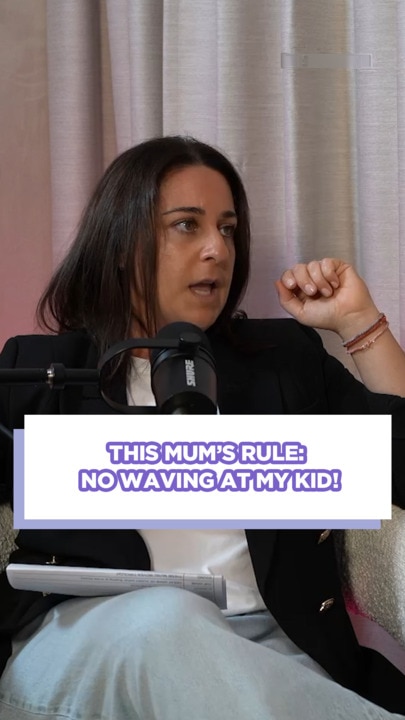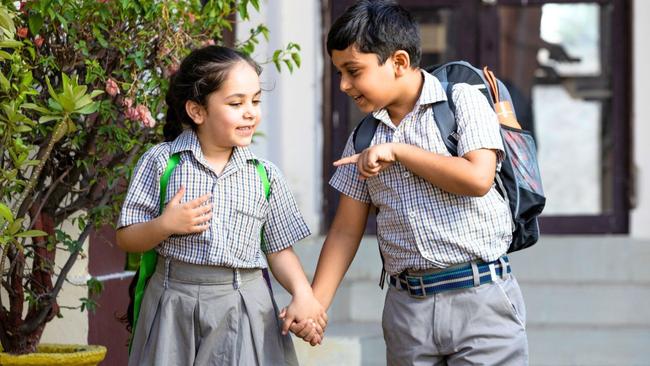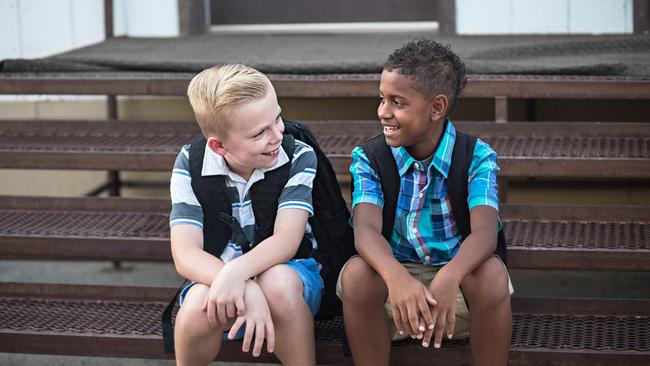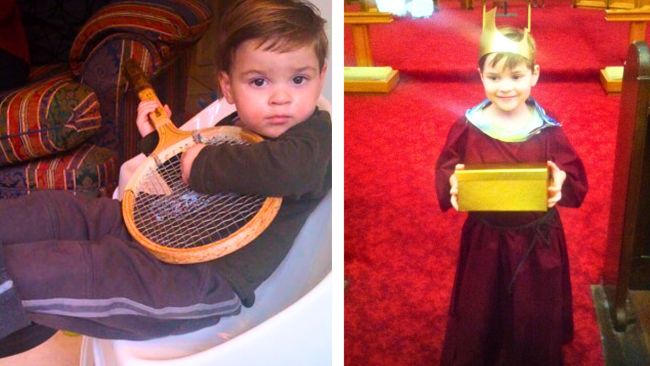Should you worry about your primary schooler's 'girlfriend' or 'boyfriend'?
"They could be thinking, 'All the other Year 4 kids have a boyfriend or girlfriend at the moment, so I will have one too'."

Parenting
Don't miss out on the headlines from Parenting. Followed categories will be added to My News.
If you have a child in primary school you may not be expecting to help them manage romantic relationships. Surely this is an issue for the high school years?
While young children do not experience romantic love in an adult sense, they can still express interest in having a “boyfriend” or “girlfriend”. Some children may talk about a “crush” or even say they are “dating” another child.
Is this normal? Why do kids do this? And what are some healthy boundaries to talk about?
Want to join the family? Sign up to our Kidspot newsletter for more stories like this
Why do kids seek these connections?
It is quite normal for children in primary school to engage in playful relationships or express interest in having crushes or a “boyfriend” or “girlfriend”.
This is a way for children to explore their world.
At this stage of their development, different types of social interactions help children work out emotions and social norms in a safe and imaginative way. It also helps them practice social bonding (how we form close attachments to others) and understanding interpersonal dynamics.
So, just as children might play games such as “mums and dads” or “sisters and brothers”, they might also play at having a boyfriend or girlfriend, or even stage a mock wedding ceremony.
Children are of course also influenced by the movies, fairy tales, books and the TV they consume and by watching older siblings or students at school.
Seeing Ariel and Prince Eric fall in love in The Little Mermaid may prompt children to act this out. Similarly they might act “spinjistu” moves in the playground after watching Ninjago.
Psychologist Erik Erikson has also suggested children aged 5–12 are at a stage where they seek approval from adults and peers (approval from friends becomes even more important in high school). Having a “boyfriend” or “girlfriend” may be a way for children to feel socially competent and accepted.
There could also be peer pressure involved. For example, “all the other Year 4 kids have a boyfriend at the moment, so I will have one too”.

So what are some healthy boundaries to encourage?
While playing at having boyfriends or girlfriends is quite normal during pre-puberty, it’s important to make sure children are staying within healthy boundaries.
If they are expressing physical affection – such as hugging or holding hands – it’s important this is appropriate and everyone is consenting. The old playground game of “catch and kiss” is no longer OK, given kisses are effectively being forced on the player who is caught.
Once children start puberty, childlike feelings of attachment can give way to romantic feelings and more intense relationships. This is when you might start to see children having “proper” relationships.
At any stage of development, keep talking about what consent looks like, feels like and sounds like. This will vary depending on their age, but the basic principles remain the same.
Throughout these conversations, emphasise no one ever has to do anything or be in a situation that makes them uncomfortable.

How can you talk to your child?
When you are talking to your child, do not to make fun of their feelings or be angry with them.
If they are exploring their feelings or being curious about relationships, it’s important they feel safe to do so without judgement. They should be able to talk about big or complex things without shame, embarrassment or fear of getting in trouble. Remember, a certain behaviour may not be appropriate, but the child themselves is not “weird” or “bad”.
If a child feels as though they can’t talk about these feelings or issues, they may feel as thought they are the problem or they are “wrong”. This can lead to poor self-esteem.
You could ask “what do you like about that friend?” to try and remove the label of boyfriend or girlfriend. It could help to talk about your own experiences, for example, “I had a few close friends in primary school and we did everything together rather than having a ‘boyfriend’ or ‘girlfriend’”.
If you are worried something inappropriate is happening, you can talk to the parent of the other child or the school to get them to help encourage new boundaries for all the children involved.
Cher McGillivray, Assistant Professor in Psychology, Bond University
This article is republished from The Conversation under a Creative Commons license. Read the original article.
More Coverage
Originally published as Should you worry about your primary schooler's 'girlfriend' or 'boyfriend'?




